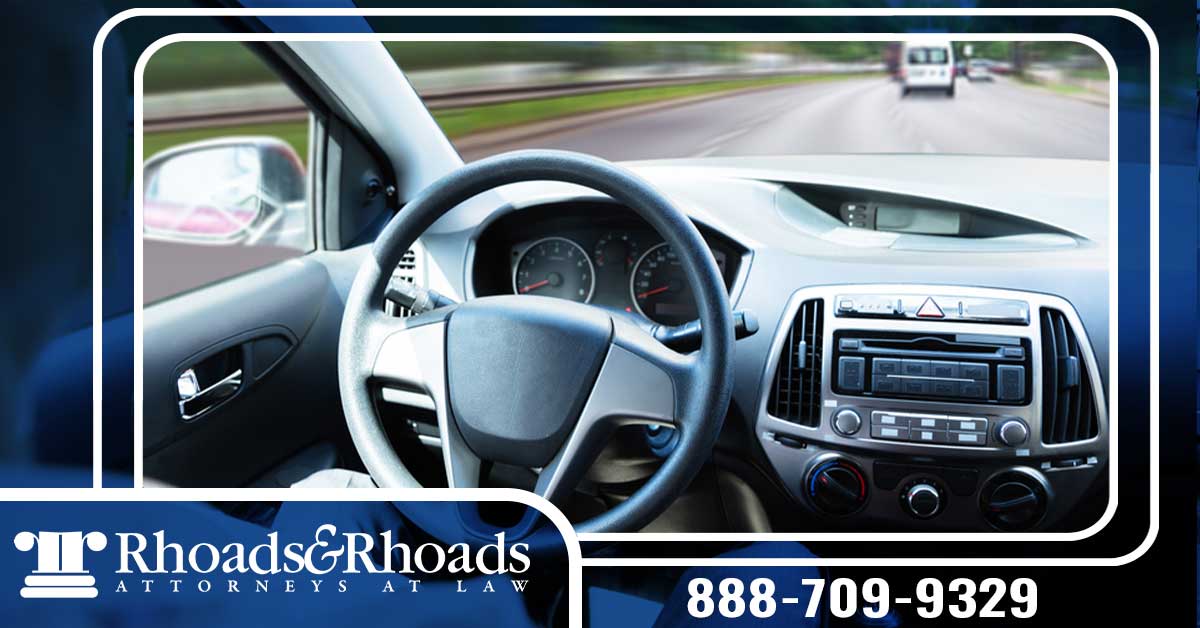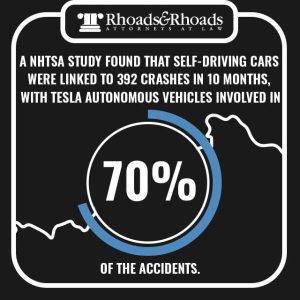
Key Points in This Article:
- As technology evolves, the definition of a self-driving vehicle is ever-changing.
- All drivers should be aware of the features, laws, and insurance options regarding autonomous vehicles.
- If you’re in an accident with a self-driving car, ensure your lawyer has the experience to handle your case.
Were you in an accident with a self-driving car? This is becoming a more common experience as the number of autonomous vehicles on the road is growing.
Around the world, there are now more than 30 million vehicles with some type of driverless features on board. Just over 17,000 are fully autonomous vehicles and this figure is expected to expand to 127,000 by 2030.
In a crash, you could be behind the wheel of a self-driving vehicle or another driver could cause an autonomous vehicle accident. Either way, you’ll need the latest in legal knowledge and representation.
How Do Self-Driving Cars Work?
The term “self-driving car” is used broadly to refer to many types of vehicles and driving functions. Some vehicles are designed to be almost completely autonomous on the road while others include innovative features that just make driving easier and safer.
Adaptive Cruise Control
This feature allows automatic adjustment of speed and acceleration to move smoothly with the flow of traffic.
Collision Warning
Some vehicles warn drivers when a collision is imminent, or even brake/turn the vehicle to prevent an accident.
Lane Centering
A vehicle with lane centering prevents drifting from the proper lane or alerts the driver of drifting movement.
Obstacle Avoidance
A vehicle with obstacle avoidance can avoid hitting a hazard in the road without hitting other vehicles or objects nearby.
Map/Path Planning
More advanced autonomous vehicles can build maps and adjust routes automatically for safety and timing.
Self-Braking/Acceleration
Many of today’s newest vehicles include self-braking and acceleration to assist the driver with maintaining the proper speed.
Self-Parking
A self-parking vehicle can make smart parking maneuvers or assist the driver with parking movements in tight spaces.
Who Manufactures and Insures Self-Driving Cars?
You’ve probably heard of Tesla and Google/Waymo, two of the most well-known autonomous vehicle brands. Competitors in the self-driving market include Nvidia, Cruise, Pony, Zoox, Argo, Momenta, and many others. Legacy brands like General Motors and Ford are also designing partially or fully autonomous vehicles.
The National Highway Traffic Safety Administration (NHTSA) divides autonomous vehicles into six classifications from Level 0 to Level 5 in ascending order of automation capability.
- Level 0: No driving automation is on board, or there is only momentary automation.
- Level 1: Driver assistance is available.
- Level 2: It uses partial/additional driving automation.
- Level 3: It uses conditional driving automation.
- Level 4: It uses high driving automation.
- Level 5: The vehicle has full driving automation.
In terms of securing insurance coverage for self-driving cars, almost all traditional auto insurance companies will cover vehicles with basic driver assistance features. However, some insurance providers will only cover fully autonomous vehicles with additional exclusions or higher rates.
A driver may believe that owning an autonomous vehicle should lower insurance premiums due to additional safety features. This is not necessarily the case. As Progressive Insurance explains, “The higher cost of vehicles with driver assistance features may result in more expensive insurance due to the potential for greater loss.”
So far, no commercially available vehicle is designed to be a fully autonomous vehicle. Don’t make the mistake of thinking that a self-driving car excuses bad driving behavior or prevents liability in an auto accident. In the next section, we’ll cover self-driving car laws.
What are the Laws on Autonomous Vehicle Accidents?
The Kentucky legislature has been discussing self-driving vehicle regulations for years, but few new laws are on the books. Most autonomous vehicle laws are addressed under existing transportation legislation or fall within Kentucky’s truck platooning law, which applies to truck convoys using smart technology.
 Regardless of whether a vehicle has self-driving features or not, all drivers are always expected to maintain control of their vehicles. A driver should never sleep, read, check their phone, or take their eyes off the road simply because they’re in an autonomous vehicle.
Regardless of whether a vehicle has self-driving features or not, all drivers are always expected to maintain control of their vehicles. A driver should never sleep, read, check their phone, or take their eyes off the road simply because they’re in an autonomous vehicle.
Human error remains the #1 cause of car accidents, but autonomous vehicles make mistakes too. A NHTSA study found that self-driving cars were linked to 392 crashes in 10 months, with Tesla autonomous vehicles involved in 70% of the accidents.
Determining liability for an accident with a self-driving car is the same as assigning liability in any other auto accident. Kentucky uses the pure comparative fault rule, which means fault will be divided among responsible parties totaling 100%. You can still claim accident compensation if you hold partial responsibility for a self-driving car accident.
Accident With a Driverless Car? Follow These Steps
After an accident with a self-driving car, stop, move to a safe location, and assess yourself and others for injuries. Call 911 to report injuries or call the police to report an accident with property damage only.
Remain at the scene of the accident and take down the other driver’s contact information, including their phone number, address, driver’s license number, license plate number, and the make, model, and color of their vehicle. Provide basic information to the police upon request, but don’t get into a lengthy discussion or speculate about what happened.
Take photos and videos of the accident scene and make a note of any other relevant details, like the weather or hazardous objects that may have contributed to the accident. Look around for nearby businesses or residences that may have captured video footage of the accident.
Avoid speaking to anyone else, including an insurance representative, until you contact a car accident lawyer. Keep in mind that not all car accident lawyers have experience handling self-driving car accidents. Ensure you’re working with a legal team with the right background and expertise.

Contact Rhoads & Rhoads – Kentucky Car Accident Attorneys
At Rhoads & Rhoads in Central Kentucky, we have decades of experience with car accident cases including those involving self-driving cars. We want to help you understand your options, so we provide free initial consultations for car accident cases.
We work on a contingency fee basis, meaning no up-front payment is required from you. We take payment only if we win or settle your car accident case, so there is NO RISK to speaking with us. Connect with us at 888-709-9329 to schedule an appointment now.


